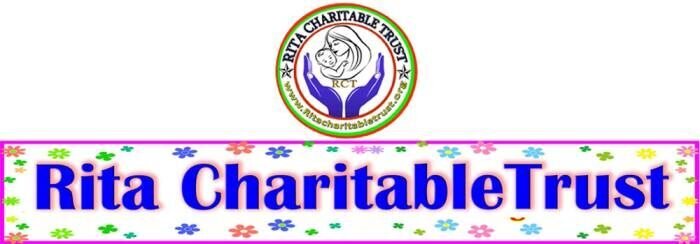Sales Manager (1 years diploma course)
Sales Manager click here

Sales Manager (Media Organization) in the Media & Entertainment Industry is
also known as an Area Sales Manager (Media Organization) / Territory Sales
Manager (Media Organization)
Brief Job Description: Individuals at this job are responsible to lead sales activities
within the designated area of responsibility
Personal Attributes: This job requires the individual to plan, lead, manage and
motivate sales teams within the designated area of responsibility to achieve the
targets set by the Sales Director. The individual is also required to acquire and
maintain key clients, develop/ oversee the development of proposals and close
sales orders. The individual is also responsible to create and monitor the sales
budget within the area of responsibility.
Sales Manager
This job role is applicable in both national and international scenarios
Credits(NSQF) TBD Version number 1.0
Sector Media and Entertainment Drafted on 09/11/2014
Sub-sector
Television, Print, Radio,
Digital, Out-of-home Last reviewed on 26/11/2018
Occupation
Ad Sales / Account
Management/ Scheduling/
Traffic
Next review date 20/06/2021
NSQC Clearance on 22/08/2019
Sales Manager
Role Description
Lead sales activities within the designated area of
responsibility
NSQF

Maximum Educational Qualifications
Graduate
Post-graduate in Sales & Marketing
Prerequisite License or Training Customer Relationship Management, Selling techniques
Minimum Job Entry Age 18 years
Experience
4-6 years
Description
Ad views Total number of times the advertisement has been seen by the audience
Barter An offer in which advertisement space/time is exchanged for goods/ nonmonetary consideration
Billing The total invoiced value payable by the client for the advertisement
time/space purchased
Budget Budget is an estimate of the total cost of production that may include a
break-up of cost components
Campaign Advertisement effort across media platforms, planned during a specific
time period
Day parts Specific time-slots during the day
Effective rate The final advertisement rate offered to the client after discounts
Frequency The number of times the audience is exposed to an advertisement in a
particular medium
Make-good A repeat run of an advertisement to compensate for an error or omission
by the broadcaster
Market share The share of the company in the total market of a product/service
Media buyer An individual handling purchases of advertising space/time across
advertising mediums
Media planner An individual skilled in selecting and determining the correct use of
advertising space/media on behalf of an advertiser
Rate The fee for a unit of advertisement space or time
Reach The total size of the audience that the medium is able to communicate
with
Sales Forecast Predictions and estimates based on historical sales performance using
trends and assumptions for the current period

Schedule A list of advertisements planned to be a part of the campaign
Sponsorship Paid advertising in the form of specifically generated
programming/content advertising for the product/service of the client
Target Audience Set of individuals with similar characteristics that are prospective
customers of the advertisers’ product/service
Target Market The geographic area over which the advertising campaign is focused
Sector Sector is a conglomeration of different business operations having similar
businesses and interests. It may also be defined as a distinct subset of the
economy whose components share similar characteristics and interests
.
Sub-sector Sub-sector is derived from a further breakdown based on the
characteristics and interests of its components.
Vertical Vertical may exist within a sub-sector representing different domain
areas or the client industries served by the industry.
Occupation Occupation is a set of job roles, which perform similar/related set of
functions in an industry
Function Function is an activity necessary for achieving the key purpose of the
sector, occupation, or area of work, which can be carried out by a person
or a group of persons. Functions are identified through functional
analysis and form the basis of OS.
Qualifications Pack For Sales Manager
Keywords /Terms
Description
NOS National Occupational Standard(s)
QP Qualifications Pack
NSQF National Skill Qualifications Framework
NVEQF National Vocational Education Qualifications Framework
NVQF National Vocational Qualifications Framework
Sub-functions Sub-functions are sub-activities essential to fulfill the achieving the
objectives of the function.
Job role Job role defines a unique set of functions that together form a unique
employment opportunity in an organization.
Occupational Standards
(OS)
OS specify the standards of performance an individual must achieve
when carrying out a function in the workplace, together with the
knowledge and understanding they need to meet that standard
consistently. Occupational Standards are applicable both in the Indian
and global context.

Performance Criteria Performance Criteria are statements that together specify the standard
of performance required when carrying out a task
National Occupational
Standards (NOS)
NOS are Occupational Standards which apply uniquely in the Indian
context.
Qualifications Pack
Code
Qualifications Pack Code is a unique reference code that identifies a
qualifications pack.
Qualifications Pack(QP) Qualifications Pack comprises the set of OS, together with the
educational, training and other criteria required to perform a job role. A
Qualifications Pack is assigned a unique qualification pack code.
Unit Code Unit Code is a unique identifier for an Occupational Standard, which is
denoted

Unit Title Unit Title gives a clear overall statement about what the incumbent
should be able to do.
Description Description gives a short summary of the unit content. This would be
helpful to anyone searching on a database to verify that this is the
appropriate OS they are looking for.
Scope Scope is the set of statements specifying the range of variables that an
individual may have to deal with in carrying out the function which have
a critical impact on the quality of performance required.
Knowledge and
Understanding
Knowledge and Understanding are statements which together specify the
technical, generic, professional and organizational specific knowledge
that an individual needs in order to perform to the required standard.
Organizational Context Organizational Context includes the way the organization is structured
and how it operates, including the extent of operative knowledge
managers have of their relevant areas of responsibility.
Technical Knowledge Technical Knowledge is the specific knowledge needed to accomplish
specific designated responsibilities.
Core Skills/Generic
Skills
Core Skills or Generic Skills are a group of skills that are key to learning
and working in today’s world. These skills are typically needed in any
work environment. In the context of the OS, these include
communication related skills that are applicable to most job roles.
Keep apprised with developments in the industry
Description
This OS unit is about knowing the organization, the competitors and the market well
to be able to carry out the job effectively
Scope This unit/task covers the following:
Monitoring and understanding the market and the competitors and
continuously seeking out new opportunities
Identifying information needed to carry out the job effectively
Identifying new innovations and future developments that might benefit the
organization or the clients
Performance Criteria (PC) w.r.t. the Scope
Element Performance Criteria
Monitoring and
understanding the
market and the
competitors and
continuously seeking
out new
opportunities
To be competent, the user/individual on the job must be able to:
PC1. monitor any changes or updates in the market
PC2. understand the market, its various elements and how they affect the
organization
PC3. identify new opportunities in the market
PC4. analyze how these opportunities can be leveraged to benefit the organization
PC5. identify who the competitors are, who their major clients are and how their
activity is changing
Identifying
information needed
to carry out the job
effectively
PC6. extract key facts from formal and informal sources and analyze how it can be
used by the organization
PC7. actively participate in forums and discussions to be able to keep updated with
any new changes in the industry/ its practices
PC8. keep up-to-date with the laws and any other regulations that can apply to the
organization
Identifying new
innovations and
future developments
that might benefit the
organization or the
clients
PC9. keep track of any changes in the industry and how they can be converted into
useful opportunities
PC10.analyze the market and forecast what the powerful trends would be that can
affect the organization in any way
PC11.keep up-to-date with any changes in policies that can affect the client’s business
Knowledge and Understanding (K)
A. Organizational
Context
(Knowledge of the
company /
organization and
its processes)
The user/individual on the job needs to know and understand:
KA1. the brand and the market position of the organization
KA2. organization’s capabilities, culture, ways of working and marketing mix
KA3. different business functions in the organization and the various aspects related
to the job role
Create and Monitor the Ad sales budget
Description
This OS unit is about estimating the cost of sales activities, developing a formal budget
and monitoring it against actual expenses
Scope
This unit/task covers the following:
Estimating the cost of sales activities and preparing an ad sales budget
Monitoring an ad sales budget
Performance Criteria
Estimating the cost of
sales activities and
preparing an ad sales
budget
To be competent, the user/individual on the job must be able to:
PC1. determine the requirements to achieve the sales forecasts and corresponding
costs, taking into account team salaries and variable bonuses, ad sales volume
commissions, sales conferences and events, travel, hotel and local conveyance,
communication expenses, annual license cost for inventory and billing
software
PC2. determine the sequence of activities in terms of their cost implications and
expenses for each item
PC3. prepare a sales budget (either using budgeting/ tabulation software or by
hand) with details on required expenses for each activity
PC4. track the outflow of funds against the budget, highlight variances and escalate
issues to key departments (especially the financer) in a coordinated and timely
manner
Monitoring an ad
sales budget
PC5. Track the outflow of funds against the budget, highlight variances and
escalate issues to key departments (especially the financer) in a coordinated
and timely manner
Organizational
Context
(Knowledge of the
company /
organization and
its processes)
The user/individual on the job needs to know and understand:
KA1. the requirements to achieve the sales forecasts and corresponding costs
KA2. the Sales expenses for previous years and reasons for variations between
targets and actuals
Technical
Knowledge
The user/individual on the job needs to know and understand:
KB1. how to estimate the sales efforts that would be required to achieve the targets
and determine the associated costs
KB2. the limitations on the total sales budget and/or the budget for specific cost
centers, as well as the organization’s working capital needs
KB3. how to break down each task/ activity into cost heads
KB4. the expected, realistic outflow against each activity cost head (using a
combination of prior experience, discussions with potential suppliers/ vendors
and any specificities of the location where the expenses will be incurred)
KB5. how to compile each activity cost head into a consolidated budget, with
summary sheets by type of cost, type of activity and any other key summaries
that are required
KB6. the typical areas of overruns and how to build in adequate contingency into
the budget
KB7. applicable procurement methods and vendor/ supplier contracts that would
need to be used for various cost heads
KB8. how to document any variances to the budget that do occur (either on the
expense incurred or the timing of the expense). This needs to be escalated to
the financer and resolved
Decision Making
The user/individual on the job needs to know and understand how to:
SB1. make relevant decisions related to sales activities required to achieve sales
forecasts for the year e.g. events, locations, conferences
SB2. take remedial action where there is significant variance between budgets and
plans
Plan and Organize
The user/individual on the job needs to know and understand how to:
SB3. how to plan expenses and outflow of finances in a manner that is cost effective
SB4. how to track the sales budget, ensure activities stay within the agreed budget
and minimize overruns
SB5. keep accurate records
Analytical Thinking
The user/individual on the job needs to know and understand how to:
SB6. how to assess the impact of selecting sales activities and its impact on the
budget requirements
Critical Thinking
The user/individual on the job needs to know and understand how to:
SB7. act within the limits of your authority
Problem Solving
The user/individual on the job needs to know and understand how to:
SB8. use the lessons learnt from previous budget planning and
implementation to formulate future budgets
Customer Centricity
The user/individual on the job needs to know and understand how to:
SB10. be vigilant and identify any irregular or potentially fraudulent activity
Developing
advertising sales
proposals for
media agencies
and leading
companies across
industry sectors
To be competent, the user/individual on the job must be able to:
PC1. calculate ad-value for the proposed advertisement placements, taking
into account key variables (e.g. reach/time-spent, readership,
listenership/time-spent, page views, impressions,
occupancy/availability, client credit limit)
PC2. conduct audience analysis including consumption habits, lifestyles,
ratings illustrations and comparison with peers
PC3. perform costing procedures for key variables and calculate potential
adjustments that could be factored in during the negotiation process
PC4. articulate the sales process and provide recommendations to the client
on the relevant legislation, standards and policies
PC5. develop and submit proposals within the timeframe agreed and in the
format requested by the client
Scope This unit/task covers the following:
Manage sales teams and monitor achievement of targets, as appropriate
For various mediums: Television, Print, Radio, Digital, Out-of-home
To sell any of the following ad inventory: 10 second ad spots
(Television/Radio), Sq.cm. ad space (Print), Banners (frames, pop-ups,
floating/expanding ads), classifieds, text ads (Digital), Bill-boards,
promotions, street furniture, transit assets, alternative media
including digital displays, cinema, stadiums, airports, malls (OOH)
Close an advertising sales order
Description This OS unit is about negotiating and closing the advertising sales transaction and
finalizing the relevant documentation and sales contracts
Scope This unit/task covers the following:
Negotiating and closing an advertising sale deal
Inventory may be sold across: Television, Print, Radio, Digital, OOH
Coordinating with internal teams
Communicating clearly with the clients
Timely collection of dues owed by client
Performance Criteria
Negotiating and
closing an advertising
sale deal
To be competent, the user/individual on the job must be able to:
PC1. provide a convincing proposition to the client and negotiate to derive the
maximum revenue from the available inventory
PC2. ensure that the advertisement rates are higher or equal to the benchmark rates
set by the organization
PC3. negotiate volume discounts with agencies to sell inventory in advance at rates
that are in line with benchmark discount rates set by the organisation
PC4. identify opportunities to cross-sell other sources of revenue such as media
integrations, events and activations etc.
Coordinating with
internal teams
PC5. draft sales agreements/contracts and liaise with the legal team to vet them
PC6. make arrangements with the relevant teams within the organization to ensure
execution of the contract
PC7. troubleshoot and manage client crises through effective communication and
team support
Communicating
clearly with the
clients
PC8. negotiate barter deals with clients after carrying out a detailed cost-benefit
analysis to ensure that the deal would be beneficial for the organization
PC9. clearly communicate the scope of the agreement with the client and set out
realistic expectations regarding effectiveness of the advertising
Timely collection of
dues owed by clients
PC10. monitor billing details and outstanding dues, ensuring that dues are collected
on time through the respective sales manager








